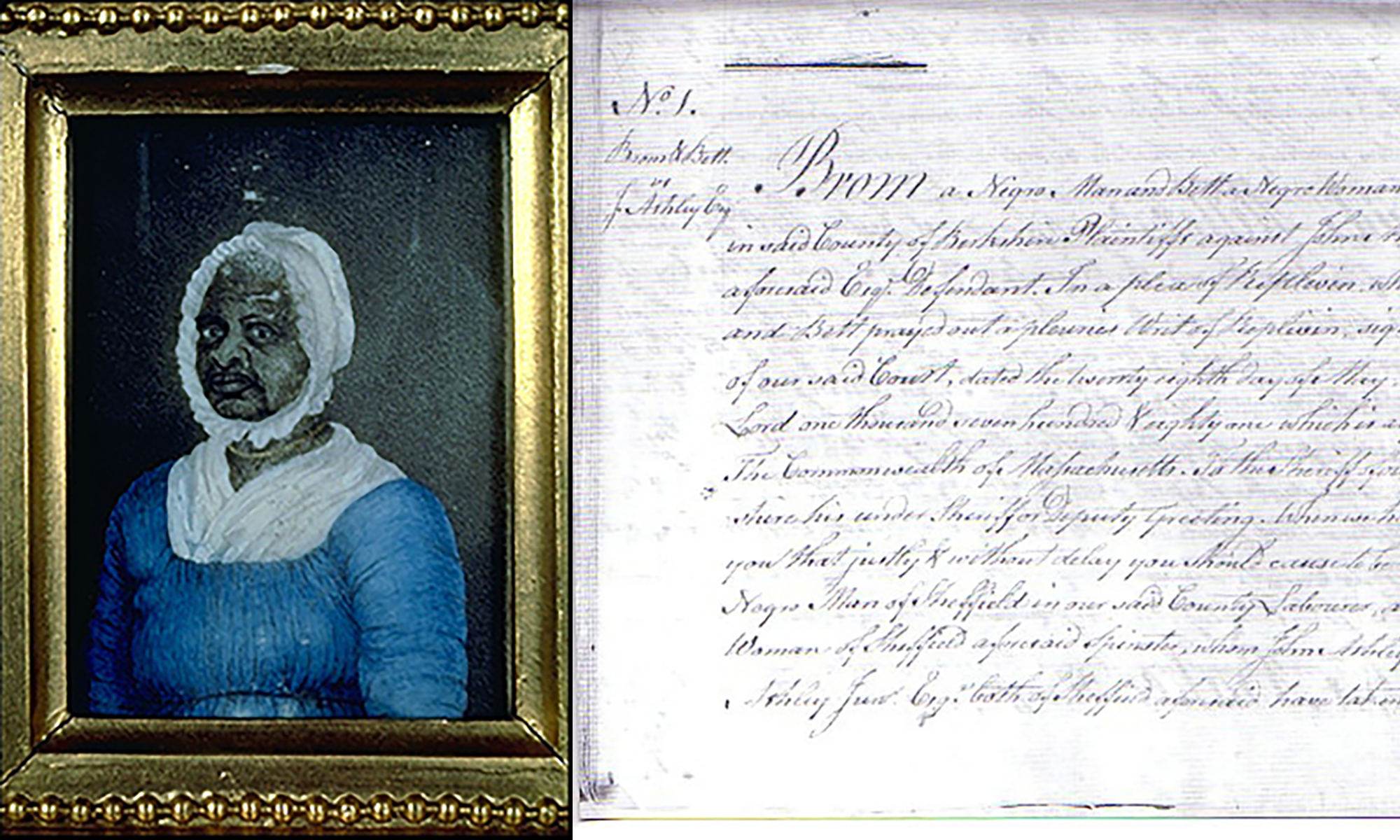The book, One Minute A Free Woman: Elizabeth Freeman and the Struggle for Freedom (2010) by Emilie Piper and David Levinson claims that “Lizzie” being Mumbet’s sister is uncertain. The authors are fairly certain from archival research that Lizzy was in fact her daughter. The authors also point out that even though W.E.B. Du Bois claimed he was related to Mumbet, the genealogical studies show Mumbet was not. The authors studied whether Elizabeth Freeman was married to a man who served in the Revolutionary War and found that records show she was never married (the court record describes Mumbet as a spinster). So Brom could not be Mumbet’s common law husband. The authors also claim that Elizabeth Freeman was not the first black woman to win her freedom and instead claim Freeman was the first in Massachusetts to sue for her freedom on constitutional grounds and win, thus helping to end slavery in Massachusetts. The book also introduces many new, rich details about this exceptional woman’s life that heretofore were unknown. And it sets her story in the context of her times and her home sites, as well as following her descendants through the years.
While the authors have changed the story (just a bit) that has been told for years in Berkshire County there will be without a doubt other researchers and authors stimulated to uncover the facts and add more to Mumbet’s story.
For example, Nash and Gao Hodges published in 2012 that Mumbet and Agrippa Hull both worked at the Sedgwick Stockbridge Home and were neighbors when Mumbet moved into her own purchased home, which is the book below:
Without a doubt more information on Mumbet will continue to be dug up by scholars, historians and authors which will be published on this website and acknowledging the source.
Another example is this quote from the The Revolution and the End of Slavery in Massachusetts, Royall House and Slave Quarters:
“As early as 1781, a local court of common pleas found in favor of Elizabeth (Mum Bett) Freeman and a man named Brom when they argued that they were being held in slavery unlawfully. And in 1783, in a freedom suit brought by Quock Walker, Chief Justice William Cushing of the Supreme Judicial Court in effect told the jury that slavery had been abolished by the new state Constitution. Elizabeth Freeman was later remembered as saying, “Any time, any time while I was a slave, if one minute’s freedom had been offered to me, and I had been told I must die at the end of that minute, I would have taken it—just to stand one minute on god’s airth a free woman—I would.” ”
A movie is in development and, finally, Mumbet is in the Smithsonian’s NMAAHC!

